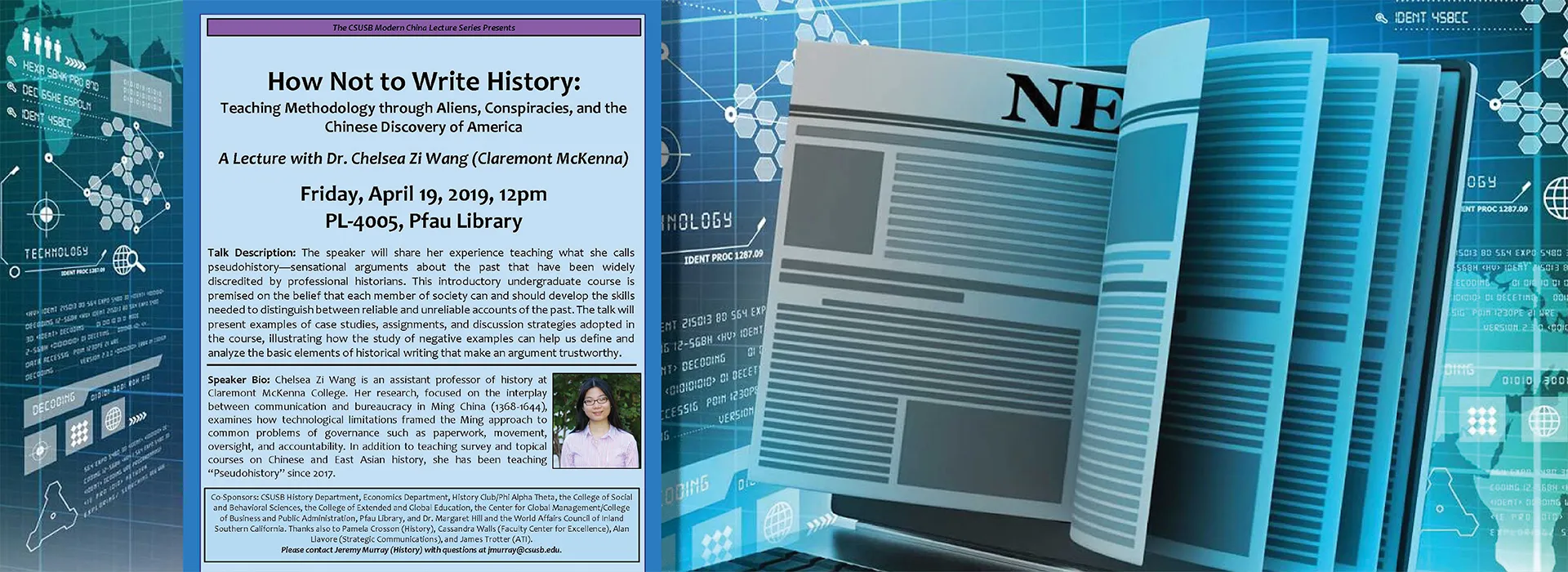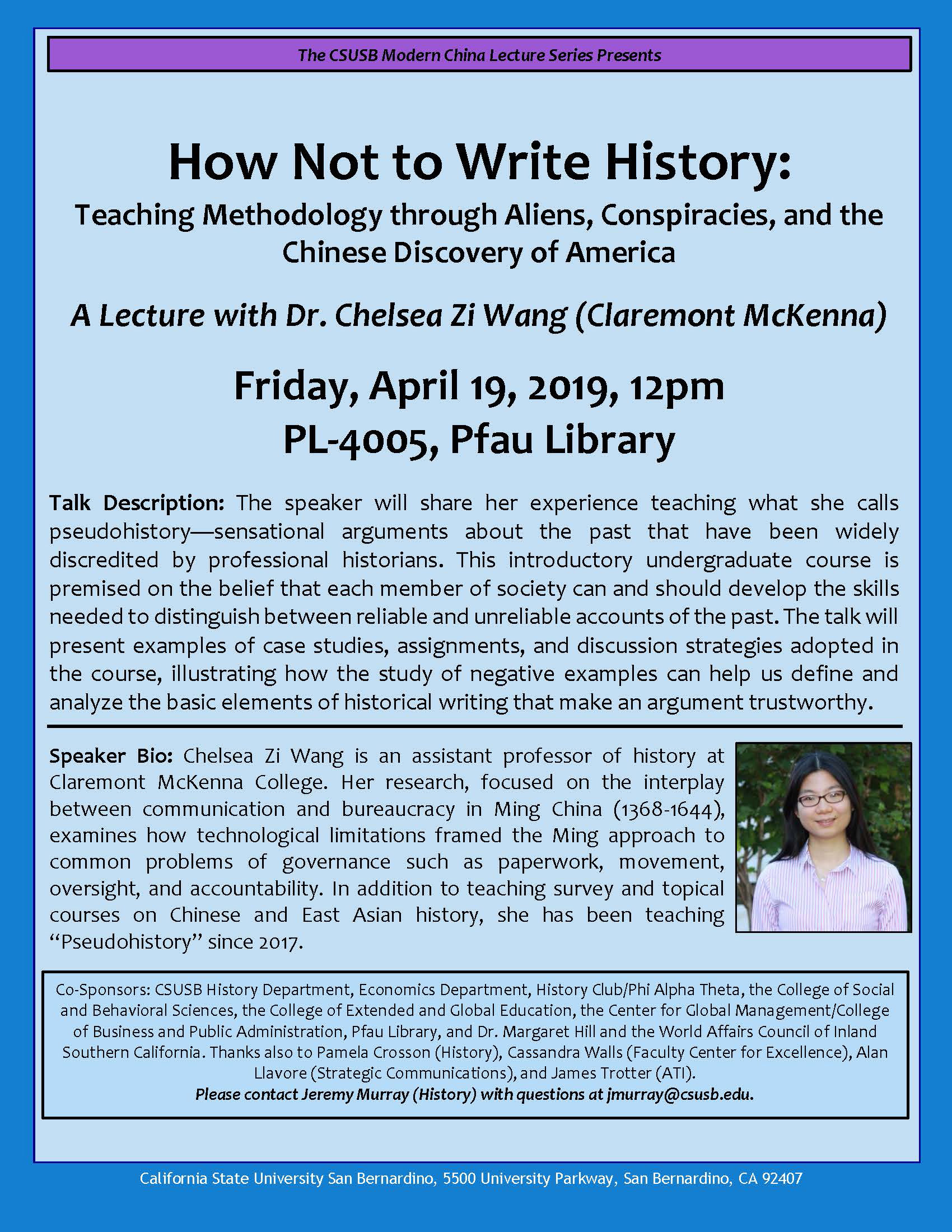Joe Gutierrez Office of Strategic Communication (909) 537-5007 joeg@csusb.edu

Pseudohistory – sensational arguments about the past that have been widely discredited by professional historians – and how to discern what is reliable when presented with multiple accounts will be the topic of the next Modern China Lecture set for April 19 at Cal State San Bernardino. “How Not to Write History: Teaching Methodology Through Aliens, Conspiracies, and the Chinese Discovery of America,” will be presented by Chelsea Zi Wang, an assistant professor of history at Claremont McKenna College, beginning at noon in room PL-4005 in the John M. Pfau Library. The presentation is free and open to the public; parking at the university is $6. “This is a timely and refreshing topic, with anti-intellectualism and anti-expert views flooding social media and the political discourse,” said Jeremy Murray, organizer of the lecture series and associate professor of history at CSUSB. “Chelsea Zi Wang’s work on this topic is lively and entertaining, but it’s also urgent for showing students that in an era of conspiracy theories and willful ignorance, the laws of gravity, honest inquiry, and sound research still apply.” Wang teaches a course on “pseudohistory” at Claremont McKenna that aims to equip students with “skills and principles that can be used to assess the strengths of historical arguments in particular and of arguments in general,” according to a course syllabus. Her presentation at CSUSB “will present examples of case studies, assignments, and discussion strategies adopted in the course, illustrating how the study of negative examples can help us define and analyze the basic elements of historical writing that make an argument trustworthy,” according to the talk’s description. Wang’s research, focused on the interplay between communication and bureaucracy in Ming China (1368-1644), examines how technological limitations framed the Ming approach to common problems of governance such as paperwork, movement, oversight and accountability. In addition to teaching survey and topical courses on Chinese and East Asian history, she has been teaching the course on pseudohistory since 2017. The Modern China Lecture Series was initiated to promote awareness of important issues related to China for those on the CSUSB campus and in the community. In the series of more than 40 lectures, workshops, film screenings and roundtable forums since January 2014, China scholars from UC San Diego, UC Riverside, the Claremont Colleges, UCLA, USC, UC Irvine and other institutions have visited the CSUSB campus to share their expertise and opinions. Speakers in the series have included specialists in history, economics, political science, philosophy, finance, security studies, literature, anthropology and other fields. The next, and final, lecture in this academic year will be presented on May 23 by Ruixue Jia, an assistant professor of economics at UC San Diego, whose presentation will focus on political hierarchy and regional development in China from the years 1000-2000 AD. The series cosponsors are the CSUSB Department of History, the Department of Economics, the History Club/Phi Alpha Theta, the College of Social and Behavioral Sciences, the College of Extended and Global Education, the Center for Global Management/Jack H. Brown College of Business and Public Administration, John M. Pfau Library, and Margaret Hill and the World Affairs Council of Inland Southern California. For more information on the April 19 event or the Modern China Lecture Series, contact Jeremy Murray, associate professor of history, at jmurray@csusb.edu. For more information on Cal State San Bernardino, contact the university’s Office of Strategic Communication at (909) 537-5007 and visit inside.csusb.edu.
